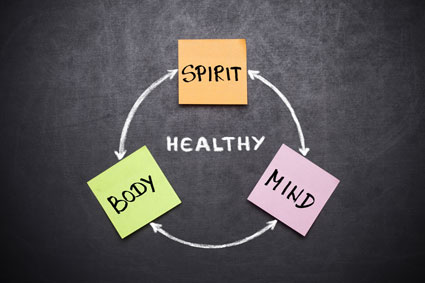Social Anxiety Tips
On some level, every human being experiences social anxiety. However, while some can overcome the natural anxiety experienced when in a larger group of people, or speaking in front of strangers, others have a much harder time finding ways to minimize the anxiety and it can interfere with their ability to develop relationships or move up in their professional worlds. The underlying foundation to much of social anxiety is the fear of judgment. This fear of judgment is a concern that others will not like you or may not want to get to know you, this leads to thoughts that you are not good enough for certain people. If left alone, this can become a vicious negative cycle in which you fear judgement, you think others do not like you, you experience lower self-esteem, and with increased social anxiety you feel less compelled to engage in conversations.
The key is to not allow this cycle to occur or if it has begun, to not allow it to grow out of your control. You have control over your thoughts, which in turn can control your reactions and decisions in a certain situation. The key to overcoming social anxiety will start with doing some homework to gain self awareness into the triggers to your social anxiety. Once you can identify triggers, you can work to overcome some aspects of the social anxiety.
Gaining self awareness will involve conscious attention to your own "self-talk." Self-talk is defined as that voice in your mind as you move through your day or communicate with other people. Many times, we are not aware of these thoughts in our mind or the things we say to ourselves as we go through our routines. However, with practice, we can gain great insight into our self-talk and realize how such thoughts impact our day to day operations, and even more the way we communicate with other people.
Since we are focusing on social anxiety, a helpful indicator for when to pay attention to your self talk is when you start to experience the bodily sensations of anxiety. Anxiety is often accompanied by increased heart rate, sudden hot flash, sweating, nervous tapping of the feet or hands, difficulty concentrating on the present moment, and difficulty catching one's breath.These bodily experiences vary in different people. As a beginning exercise to develop some awareness into your self talk during moments of anxiety, next time you experience these bodily sensations, begin to pay conscious attention to the immediate thoughts that come up in your mind. It is vital that you do not filter these thoughts, instead let them come up as they naturally would. The goal of the first exercise is to gain awareness, later on we will introduce strategies that can help alter thoughts. For the purpose of this first exercise, as you begin to experience bodily sensations of anxiety, be mindful of what thoughts are coming up. Try to keep note of these immediate thoughts. If you have the capability, in that moment write them down; however, it is often the case that you cannot do this while it is happening. So as soon as the situation is over and you have a few minutes, write down the exact bodily sensations you experienced, the immediate thoughts that came up, and the details of the situation (setting, people involved, time, etc). You can use the included chart as a helpful template for mapping out the anxiety sensations, thoughts, and situations.
This template can act as a helpful tool to beginning a thought journal. As you are able to map out the situations that evoke social anxiety and the related immediate thoughts you have about yourself, look to see if there are any patterns. Two key areas to focus in on are situations that evoke social anxiety that seem to be related to sensitive topics for you, or situations you become very defensive. While both sensitive topics and defensiveness can be very emotionally taxing to think about, they can both be powerful tools to develop self awareness. The more self awareness you gain about what topics or situations trigger social anxiety, the more power you will have in overcoming such anxiety.
Another helpful question to ask yourself as you breakdown the specific social situations that trigger anxiety is to examine what conclusions you are making about yourself based off the conversation. For example, during high anxiety as you are trying to communicate with someone, do you find yourself jumping to the conclusion that the other person is not listening to you? Or the other person will think you do not know what you are talking about? Perhaps that they will think you are not qualified? Or in the most extreme, that the other person does not like you? A helpful tip for this is to use "thought stopping." Thought stopping is the strategy in which you catch yourself having a thought and you immediately interrupt it by saying to yourself, "I have no basis for this thought." The truth is that in any conversation you cannot know what the other person is thinking in his or her own mind, so jumping to conclusions can only increase your anxiety, when you have zero evidence for that conclusion. Remember, any conclusions or assumptions you are making about what the other person thinks about you, is in fact coming from your own insecurities. Use these as insights into your own anxiety triggers. When you catch yourself making such assumptions or conclusions, as soon as you can, write these down in your thought journal and try to allow yourself time to reflex ton where these insecurities come from? This process can help demonstrate you have no evidence for making those assumptions, and in doing so overtime can help you to diminish the unconscious jumping to conclusions.
Many times introverts are associated with being social anxious. An introvert is a person who gains energy from spending time with just a few close friends or family, or also prefers time alone to perform things he or she enjoys. It is an important point to make that research does not demonstrate that someone classified as an introvert also has social anxiety. There are many people who identify as an introvert and are able to function fine in public spaces or in groups of people; they simply prefer one on one situations or time alone. With that however, an introvert would be more likely to experience social anxiety than an extrovert (it is just important to not assume all introverts have social anxiety) and it can dictate his or her ability to connect with others both personally and professionally. Unfortunately, the world is very much set up for extroverts. Most workplaces involve large groups of people, or projects you must work with a larger group of colleagues on. In personal realms, being social is often revered as "the way to be." People organize social gathering around large life events; weddings, birthdays, housewarming parties, baby showers, and even funerals. All of these involve larger groups of people, which means more unpredictable conversation, which for some introverts can mean increased social anxiety.
A key word above is "unpredictable." It is that very thought of an environment being unpredictable that is closely tied to any social anxiety. It is a fact that you will not be able to control the other people in the social gathering; what they say, how they act, the overall feeling of the gathering. However, what you can control is your own approach to the situation. So working some of the following tips into your approach to any social gathering might help any person with social anxiety to at the very least get through the event, but perhaps even work up to finding some enjoyment from such situations.
Inherent in each of the following tips is the above discussion on your own self work to gain insight into the specific triggers to your anxiety, and thought journaling to understand the inner workings of certain situations. If you can analyze such micro-situations, you may be able to realize why you experience the anxiety and in doing so be able to increase your predictability of certain events and overall decrease your anxiety.
One helpful tip when you know you will be placed into a social gathering that might spike your anxiety is to assess the crowd. Do you know people there? If so, who are you most comfortable with? In cases where you are experiencing higher levels of anxiety, try to stay connected to the people you trust and have established comfort with. This will help to minimize some of your anxiety. It could also be helpful to bring someone you are comfortable with along to certain social gatherings, if you anticipate not knowing too many people.
So what if you don't really have any established close connection in a certain enviornment? Perhaps you just started a new job and have work functions you feel obligated to attend. In these situations you will want to prepare yourself before the function. Firstly, acknowledge your anxiety and also acknowledge how normal your anxiety is. You are not out of the ordinary for experiencing anxiety in a new situation. Now implement some of the above strategies to explore your thoughts about the event. Remember, you have control over letting the anxiety grow out of control or keeping it within a small controllable cage. Perform some self talk about why this function or event will be beneficial. Also ask yourself the question, what is the worse that could happen? If your answer is that you will make a fool out of yourself and no one will like you. Your next step is to assess how realistic that thought is. Each of these steps can be great to write down in your thought journal before leaving for a function or event. Writing the thoughts down maintains your control over the thoughts and can prevent your anxiety from letting these thoughts grow to be irrational. Next, set a small goal for yourself. For example, "I will talk to one colleague and get to know a few interesting things about them." Establishing realistic and manageable goals helps keep your mind focused on that goal, which also will help to keep your anxiety at bay. Many times social anxiety can get out of control because people overwhelm themselves with feeling they need to do so much within the short amount of time. For instance, it may start with, "I must make a good impression on everyone." "Oh no, what if I don't do that." "What if they think I don't know what I am talking about." See how one thought can lead to endless "what if…" statements.
This leads to the next tip, avoid "what if" statements. "What if" statements will feed into your dread about the unpredictability of a social gathering. Instead, as soon as you catch yourself having a "what if" thought, practice the thought stopping strategy. Remind yourself, that is irrational and you have no basis for that thought. Return your mind back to your small and manageable goal.
So now you find yourself in the social situation, you might be experiencing some butterflies, hot flashes, your mind might start to race with thoughts again. The best tip for this situation is to practice a few deep breaths. Never underestimate the power of deep breathing, while it is an incredibly simple strategy, it is amazing how it is rarely performed when it is most needed. Remember, you have control over your thoughts, which will control you behaviors, and help to minimize your anxiety. So take some deep breaths and simply scan the room. Remind yourself of your small and manageable goal, and begin to work towards that goal.
In all reality, there are some people who experience very intense anxiety in social situations. So if you find yourself in a social situation that is evoking intense anxiety, remember to perform some deep breathing. Then perform some self talk along the lines of, "I am in no danger right now, and I am okay." Remember, anxiety is our body reacting to what feels like a dangerous environment. This stems way back to more primitive days of human beings when anxiety would activate our fight or flight so human beings could survive in harsh environments. While even today, anxiety functions to help human beings react in stressful or dangerous situations, it can also be associated with non-threatening situations. However, some people have formed an association between social functions as being threatening. This stems back to the idea of vulnerability and judgement. So your goal when experience intense anxiety is to talk to yourself and remember that you are in no danger where you are. This may seem silly to say to yourself because you consciously know that a social gathering is typically non-threatening; however, you unconscious mind and body still think it is threatening. So in the most basic form you are working to de-associate the social settings from the idea of being in danger.
While these tips may not make your anxiety completely go away, they do provide some helpful strategies for coping with social anxiety and allowing yourself to begin to regain control over the vicious cycle anxiety can grow into.



























